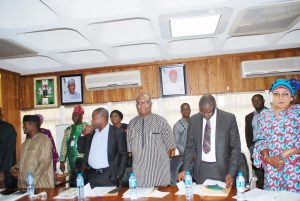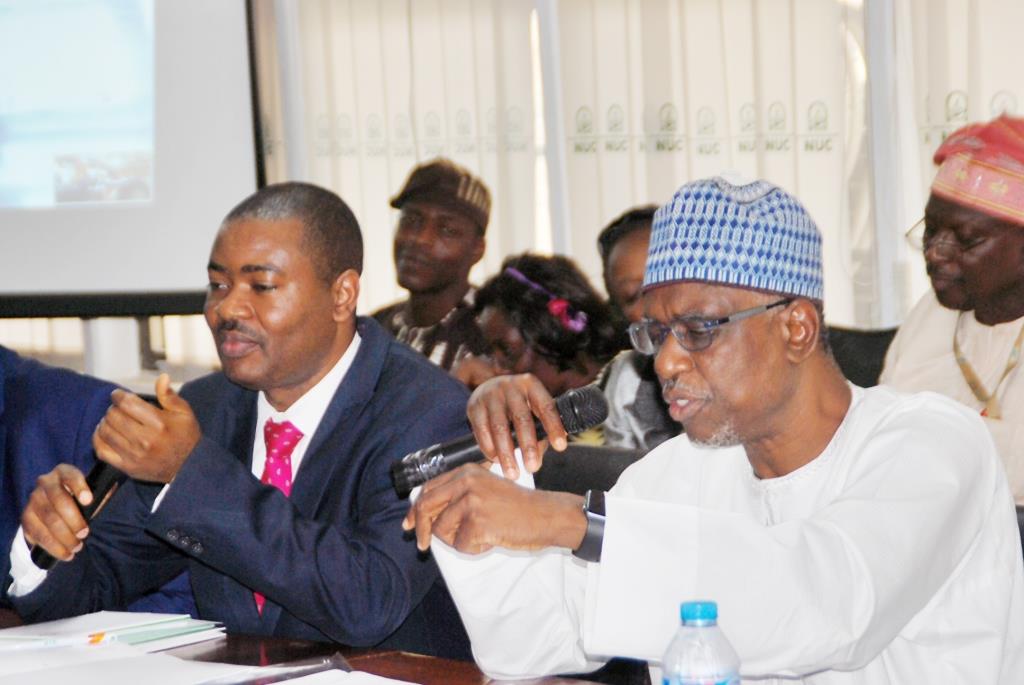The 10 Africa Centres of Excellence (ACEs) in Nigeria are gradually becoming centres of research and changing the notion that the functional mandate of Nigerian Universities is teaching alone. Executive Secretary of the National Universities Commission (NUC), Professor Abubakar Adamu Rasheed, who made this observation at the meeting of the ACE National Project Performance Review Committee (NPPRC), held last December, at the NUC Conference Room, Abuja, added that the Centres had also become the gateway for internationalisation, as they have begun to attract international students.
Professor Rasheed said it was regrettable that research activities in Nigerian universities were once so relegated that the research centres in some of them were closed down. He noted that, although research was capital intensive, it had a direct and tremendous impact on any nation’s development, through its findings, adding that Nigeria was one of the countries with the least sponsorship of research in the world. According to him, “there is a correlation between a country’s development and its investment in research.”
The Executive Secretary stated that the ACEs were very important to the Commission and the country at large because, through them, Nigeria is building viable research centres, which hold a lot of promise for the quest for economic and national development. NUC was, therefore, not only eager to see that the ACEs implement their programmes in line with their agenda, but also to ensure that they succeed in achieving their overall goals and objectives.
Professor Rasheed expressed concern that about three of the centres were not doing as well as the others. He encouraged them to devise ways of addressing their challenges, stressing the need for networking among all the ACEs, so as to share experience and resources. To ensure the success of the Project, he proposed a meeting of the Centre Leaders to be convened more regularly, in addition to the bi-annual meeting of the NPPRC, noting that Nigeria would be the better for it at the end of the Project.
On some of the observed challenges, Professor Rasheed said the late release of funds could be overcome by planning ahead. He also charged the Centres to consider merging some programmes to make them stronger and also set up internal quality assurance mechanisms to guide their activities. If well implemented, he said, the ACEs would serve as a brand for producing postgraduate students in the country. He tasked the Centres not to be regimented, but to be innovative and creative in their programmes. For example, some crucial could be mounted directly in the relevant Faculty of the university, without going through the ACEs.

Participants at the meeting
Professor Rasheed told the meeting that the NUC was embarking on a comprehensive review of the undergraduate curriculum in the Nigerian University System (NUS), to reflect modern realities, promising that the resource verification and accreditation teams would be visiting the Centres, by the first quarter of this year, to verify their resources and accredit mature programmes. On the call by members at the meeting to shield the ACEs from strike actions by university-based staff unions, he said it would be difficult to isolate the centres from the unions, since they are located on university campuses, but the Centres could find ways of working around strikes, when they occur, to ensure that their activities are not interrupted.
In his remarks, the World Bank’s ACE Task Team Leader, Mr. Andreas Bloom, said that Nigeria was the most important country within the project and that failure was not an option. Nigeria must succeed because, “If Nigeria fails, the project fails”. According to him, Nigeria is strong and has the capacity to lead, but it was not yet leading the way it should. He commended the Executive Secretary, Project Coordinator and Team members for their commitment to the Project. He however appealed to the Executive Secretary to expedite action on the resource verification and the accreditation visits to the Centres. He stated that Ghana had strong Centres, with an independent accreditation body. All their programmes are nationally accredited, with one international accreditation. He promised that the World Bank, on its part, would hasten the process of releasing fund to the Centres.
At the meeting were the ACE Project Coordinator and NUC Deputy Director, ICT Projects, Dr. Joshua Atah, some Vice Chancellors, Team leaders and members of the Projects. The Centres, their locations, discipline and areas of focus, among others, are as follows:
[table id=2 /]

